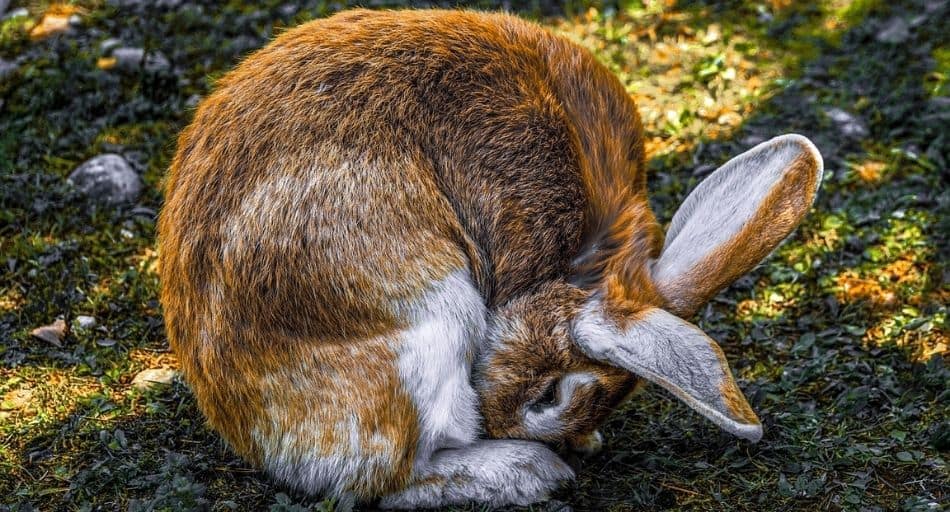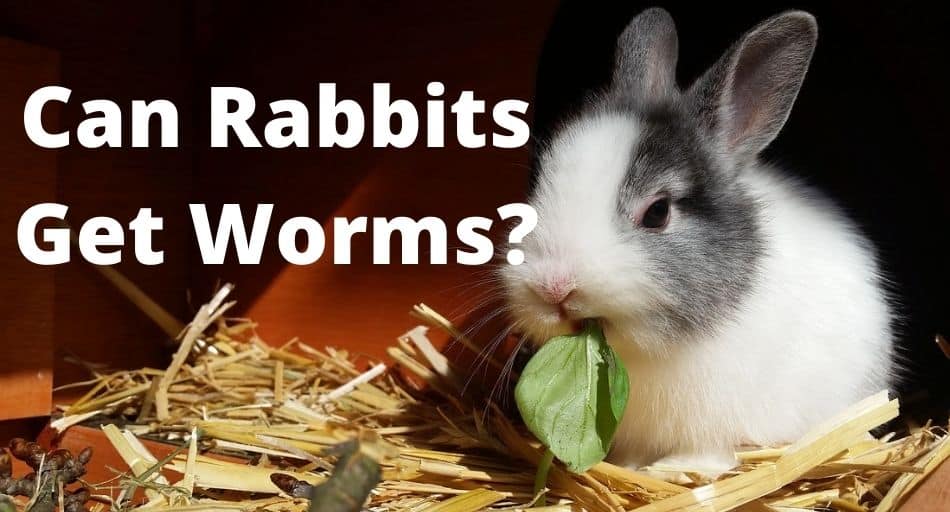As an affiliate, we earn from qualifying purchases on Amazon. We get commissions for purchases made through links in this post.
For pet rabbit owners, taking good care of their pets is everything. This includes making sure they are perfectly healthy. But, can rabbits get worms? This is a common question that pet owners ask themselves every so often about their little bun.
You could also be wondering; how would one know if their pet rabbit has worms? Are there any specific symptoms you should be on the lookout for? Are there specific worms that mostly affect rabbits? How often should you worm your pet bunny?
In this article, we will jump to each of the above key queries and get the right responses and answers to each one of them. Read along to get a better understanding.
Let’s get to it.
Can Rabbits Get Worms?
Although, less common than in cats and dogs; it’s very much possible for rabbits to get worms. The most common worm that affects rabbits is the pinworms. Rabbits can be infected with pinworms when they eat feces from an infected rabbit. Other worms that could affect your rabbit include tapeworms and stomach worms.
Getting a better understanding of the signs to look out for can help with ensuring your bunny gets the best treatment that would keep him looking healthy and happier.
When it comes to identifying the exact worms’ signs and symptoms, one needs to be super keen and pay close attention to their rabbit. Otherwise, you might end up missing them right under your nose.
So, what exactly should one be on the lookout for?
| Image | Product | Details | Price |
|---|---|---|---|
 |
Kaytee Fiesta Rabbit Food, 20 Pounds | ✔️ Assorted fruits & veggies ✔️ Rich in Natural antioxidants ✔️ Supports Dental Health |
Check Price |
 |
All Natural Rabbit Pellets | ✔️ Supports Immune System Health ✔️ Perfect for Picky Eaters ✔️ Fortified with vitamins & minerals |
Check Price |
 |
Kaytee Supreme Rabbit Food 5 lb | ✔️ Natural seeds and grains ✔️ No artificial colors or flavors ✔️ High-quality ingredients |
Check Price |
How Do I Know if my Rabbit Has Worms?
The most common worm that affects most rabbits is the pinworm. You are therefore more likely to notice pinworm signs than tapeworms or stomach worm signs.
Some of the most common signs you should be on the lookout for includes the following:
- Scratching or biting at their rear end: You may notice your bunny friend scratching or biting at their rear end. This is mostly a sign of pinworms as it’s known to mostly attack the rear end. As soon as you notice this, it’s recommended to consult your local vet to further diagnose the condition. The test will mostly be a fecal float test to better diagnose the condition.

- Irritated skin at their rear end: As the rabbit scratches or bites its rear end, it may end up causing some skin irritation to themselves. This is one of the easiest signs that would help you understand that you could be dealing with a worm infestation.
- Small white worms on their anus or in their feces: When the worms have been undetected for a while they may end up appearing on your rabbit’s feces or around their anus area. These worms are usually around 5mm – 10mm long and are very easy to spot.
- Poor coat condition: Rabbits are known to shed every three months. They mostly shed their coat as a way to adjust to either warmer or cooler temperatures. If you, however, notice your rabbit losing fur in patches rather than all over this could be a result of worms affecting your bunny.
- Lack of appetite and weight loss: Another clear sign of worms in your rabbit could be lack of appetite as well as weight loss. If you notice your pet rabbit isn’t eating well as it used to be and this is with no change in its diet, then this could be a sign of him suffering from a worm. Lack of appetite ends up leading to weight loss.
- Sticky feces: You should also be on the lookout for sticky feces from your bunny friend. You may also notice white worms on the feces as well as the feces being stuck at the rear end of your rabbit.
When it comes to young rabbits, especially when they are being weaned, worms can severely infect them leading to signs such as diarrhea, lethargy, and substantial weight loss. In this case, the young rabbits could have been infected from getting in contact with worms’ eggs.
Common Worms Affecting Rabbits
Some of the most common worms affecting rabbits include pinworms, tapeworms, and stomach worms.
Pinworms are by far the most common worm that affects rabbits. These worms can live undetected in rabbits’ colon, cecum, and on their small intestines. The only way this worm is transmitted is through getting in direct contact with an infected feaces of a rabbit. This results in ingestion of pinworm eggs and can begin to hatch within 30 hours.
Tapeworms are the other worms that could affect your bunny friend. These worms are most common in cats, dogs, and foxes than in rabbits. They can be picked up by rabbits when they get in contact with contaminated feaces from other animals. This can develop into cysts in rabbits causing abdominal discomfort.
Stomach worms in rabbits are quite rare. These worms would be located in the mucus layer of the rabbit’s stomach. Signs of infestation in rabbits could include weight loss as well as seeing the worms in their feces. This is mostly in cases where the rabbit is carrying a large number of stomach worms. Your vet may also be able to diagnose stomach worms by conducting fecal floatation and identification of the eggs in the feces.
How Do You Get Rid of Worms in Rabbits?
When it comes to treating and preventing worms in rabbits, there are a number of ways you can approach this.
Treating worms from an infected rabbit will require you to use an anti-parasitic worm treatment. Your vet would normally prescribe these medication to your rabbit. These will normally be dosed on their water and food.
How often should rabbits be wormed? Although most pets including rabbits don’t require regular worming routines. It’s recommended to worm them at least three times a year. The frequency would depend on the exact challenges you could be facing. Remember to always reach out to your vet to get a better understanding of this.
To prevent reinfestation, it’s recommended to ensure your rabbit’s bedding, playing, and feeding areas are cleaned regularly. This also includes cleaning your rabbit’s hutch thoroughly much more regularly.
In case any secondary symptoms are causing malnourishment or weight loss, a change in diet is recommended.
| Image | Product | Details | Price |
|---|---|---|---|
 |
Indoor Outdoor Bunny Cage | ✔️ Durable & Weatherproof ✔️ Easy to Clean ✔️ Special design |
Check Price |
 |
Extra-Large Rabbit Cage w/Wood or Wire Hutch | ✔️ Extra-Large Space ✔️ Easy Maintenance ✔️Convenient Access |
Check Price |
 |
Indoor Rabbit Hutch with Hideout for Rest | ✔️ Spacious Space ✔️ Thoughtful Design ✔️ Sturdy to Use |
Check Price |
Final Thoughts
Rabbits certainly can get worms. The most common worms affecting rabbits are pinworms. This is most common and is one that causing a lot of issues to your bunny friend.
Other less common worms are the tapeworms and the stomach worm.
To be able to identify worms in rabbits, you need to pay close attention to them and monitor any change in behavior. Taking your rabbit to the vet can also help with ensuring you are keeping your little bun friend healthy and happy.

